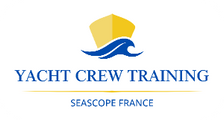
AEC1 Course: A Safe Manning Must for Deck Crew
Are you currently working as deck crew on yachts and thinking about advancing your career? Whether you’re aiming to become more employable, take on dual roles, or transition into engineering responsibilities, the MCA-approved AEC1 course can be the ideal next step to broaden your skills and unlock new professional opportunities.
In this blog, we’ll explore the many advantages of expanding your expertise with the AEC1 qualification, from enhanced employability to the exciting lifestyle of yacht engineering. The AEC1 course isn’t just a certificate. It’s an industry standard embedded into safe manning requirements applied throughout the yachting industry. Successful completion of the AEC1 training can improve employability and help young mechanics transition into the exciting world of yacht engineering.
Understanding Safe Manning: Why AEC1 Matters
In the yachting industry, legal standards and safety are paramount. Safe Manning Requirements are set by a vessel’s flag state in the Minimum Safe Manning Document (MSMD), dictating the number of qualified crew and their certifications needed onboard for safe operation.
- For smaller commercial yachts, often under 200 gross tonnes and engines below 750 kW, an AEC1-certified crew member can fulfil the engineering role instead of a fully licensed engineer.
- Earning your AEC1 certificate lets you legally perform both deck and engineering duties, increasing your value to employers and opening doors to dual-role positions.
- Compliance with these requirements isn’t just regulation; it ensures everyone on board has the skills necessary to operate safely and effectively.
By achieving the AEC1 certification, you demonstrate your commitment to safety, reliability, and professionalism, credentials highly regarded by captains and management companies.

A Collaborative Career
Yacht engineering is a team effort and an important extension of your existing deck crew skills. Holding an AEC1 certificate allows you to effectively bridge the gap between the deck and engine room, making you an indispensable part of the yacht’s smooth operation.
- You’ll collaborate daily with interior, deck, and bridge teams, improving not only your technical know-how but also your communication skills.
- Your ability to tackle engineering challenges while maintaining safety and compliance will make you a versatile asset in any crew dynamic.
Book our AEC1 course now and level up your career.
See the World From a Different Perspective
Taking on engineering responsibilities expands the possibilities to work on a diverse range of vessels cruising through iconic ports and exotic locations worldwide. Your assignments might take you across the Mediterranean, to the Caribbean, or beyond, all while gaining invaluable experience. Down days offer opportunities to explore and enjoy beautiful destinations as part of your onboard life.
By providing a range of opportunities to work on a variety of vessels with varying technical systems and operational challenges, taking on engineering responsibilities on board greatly expands your professional horizons. Yacht engineers acquire practical experience in handling everything from electrical systems and safety procedures to propulsion and power transmission, developing abilities that are highly sought after in the global maritime industry.
Moreover, engineering roles in yachting often come with clear career progression pathways, from junior engineering roles supported by qualifications like the AEC1 course to senior engineer positions overseeing complex systems and managing other technical crew. Gaining experience in marine engineering on yachts sets you up for long-term professional advancement, which may include opportunities on larger commercial ships or in shore-based maritime operations.
Explore our other courses for yacht deck or stew training.
Develop a ‘Work-Hard’ Training Mindset
Choosing this career is not for the faint-hearted. Yacht environments are dynamic and require focus, discipline, and a can-do attitude, qualities many crew develop through their roles. Many crew would emphasise the need for a positive attitude and a proactive approach to work on board. The AEC1 course lays the groundwork in essential marine systems, safety, and regulatory knowledge, so you’ll be prepared for ongoing training and progression. Taking ownership and responsibility is a key trait to have as a yacht engineer. You’ll learn about engine operation, fuel management, electrical systems, and emergency procedures. Taking full ownership of your responsibilities means maintaining key machinery that directly affects vessel safety and performance.

Stand out in a competitive industry
Having the right qualifications is crucial. The Approved Engine Course 1 (AEC1) is recognised throughout the yachting industry and is often the minimum requirement for engineering roles on small commercial vessels and superyachts.
What You’ll Learn:
- Operation and maintenance of both compression ignition and spark ignition engines
- Diesel engine cycles, fuel, lubrication, and cooling systems
- Safe fuel management and understanding of combustion principles
- Maintenance of cooling and lubrication systems
- Electrical distribution and battery care
- Gearboxes, couplings, propellers, and essential control systems
- Risk assessments, pollution prevention, and fire safety
- Practical skills underpinned by strong legislative knowledge
The 5-day course takes place in Antibes, the Mediterranean yachting hub, and awards an MCA-approved certificate upon completion. It’s also valued for deckhands wanting to broaden their skill set and career possibilities.
Looking for more details on how to become a deckhand? Read more here.
Why Choose Seascope France?
Seascope France is a trusted name in maritime training, known for combining hands-on practical learning with industry-leading expertise and a supportive atmosphere. Their instructors come from diverse marine backgrounds, ensuring you learn not just the “how” but also the “why” behind every procedure. Their Antibes location connects you directly with the Mediterranean yachting hub, so you’re well-placed to take those first crucial steps into employment straight after certification.
Seize the opportunity to start a fulfilling, respected, and well-paid career path!
Get in contact with a member of our team for any questions regarding our courses!


Leave a comment